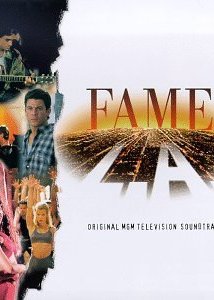 By Jae-Ha Kim
By Jae-Ha Kim
Chicago Sun-Times
December 26, 1997
2 stars
If the tenants at “Melrose Place” decided to become entertainers, their lives would pretty much resemble the ones on “Fame L.A.”
Loosely based on the 1980 film “Fame,” this syndicated series revolves around a group of young actors, singers, dancers and comics – all hoping to make names for themselves in Hollywood. The repeat airing Saturday is the second show of the series’ three-part opener, first seen in September.
Each hourlong episode makes for melodramatic eye candy with plenty of song and dance – sometimes too much song. The players are attractive and, to their credit, deliver their lines with straight faces – not always a simple feat.
“I want to be taken seriously,” says fledgling actress Reese Toussiant (Stephanie Dicker). “Just once when I go to an audition, I want them to look at me, not my breasts.”
The Benettonically correct cast is led by acting coach David Graysmark (William R. Moses). The students’ regime includes on-camera confessions about their innermost thoughts. To anyone weaned on similar antics on MTV’s “The Real World,” the “Fame L.A.” revelations pale in comparison.
An actor who never made it, David converted an old hotel into a series of apartments on the second floor and a club called Who’s Who on the first level. Not coincidentally, most of the players either live in the building or work at Who’s Who – a convenient way for the writers to keep tabs on all the characters.
As a Los Angeles hot spot, Who’s Who has about as much authenticity as the Peach Pit After Dark does on “Beverly Hills, 90210.” It doesn’t.
After turning in some fine performances in the “Perry Mason” series, “Falcon Crest” and the feature film “Mystic Pizza,” Moses appears a bit embarrassed with his patriarchal role here, unconvincingly delivering such lines as, “I love teaching about as much as acting.”
As singer Suzanne Carson, Heidi Noelle Lenhart shows the most potential. Her voice is clear and bell-like, and she projects a deceptively fragile beauty. After being manipulated by a womanizing rock star (Joseph Rye), she lashes back at him in a realistic, if futile, way.
The show’s weakest moments occur when the characters break out into music. It’s like a bad Elvis movie – except for one thing. Elvis could sell even the cheesiest song. Not so with this bunch.